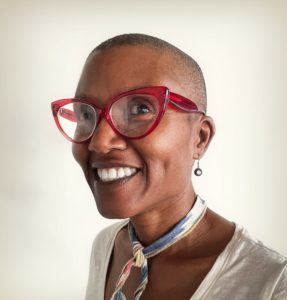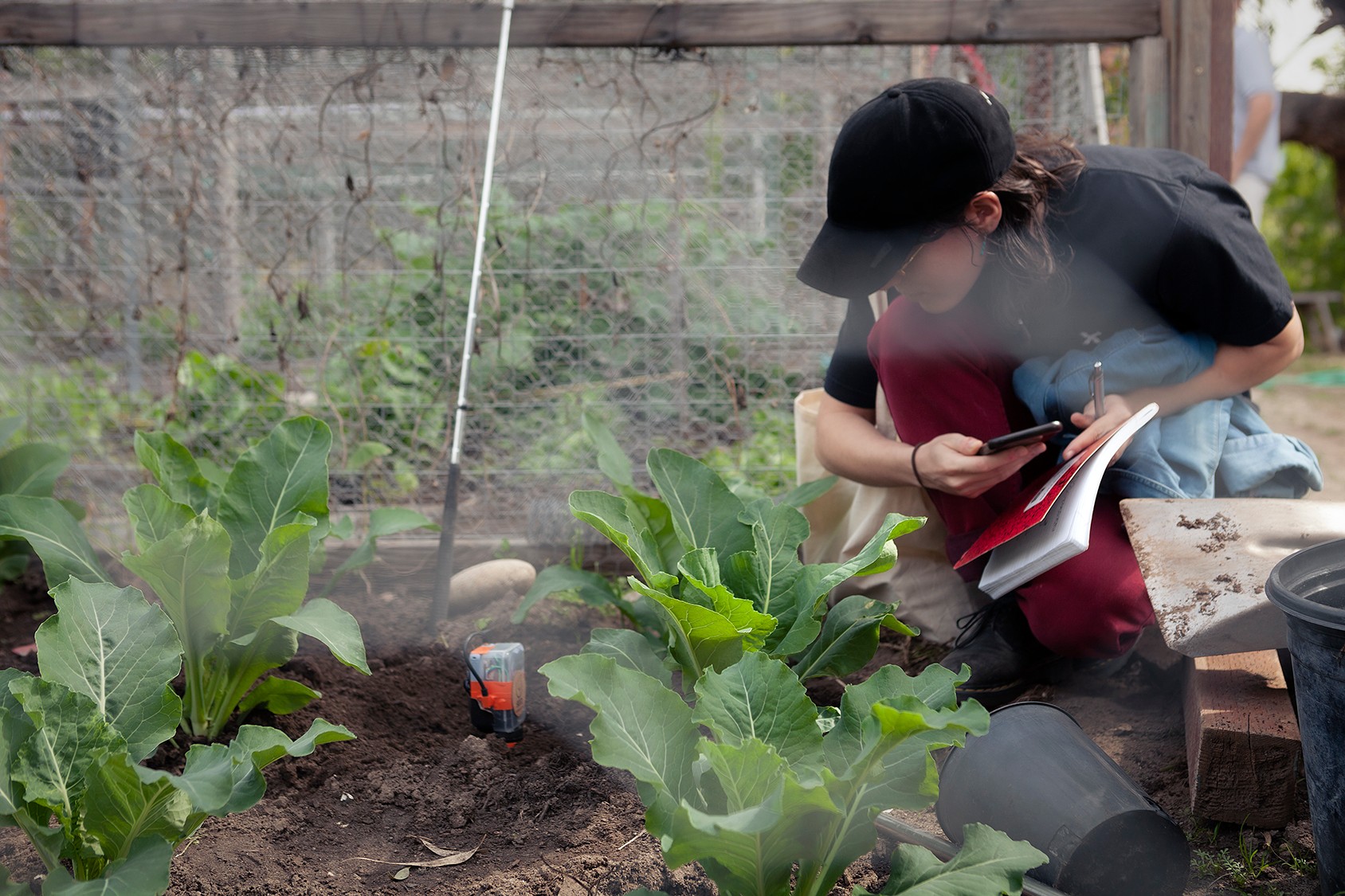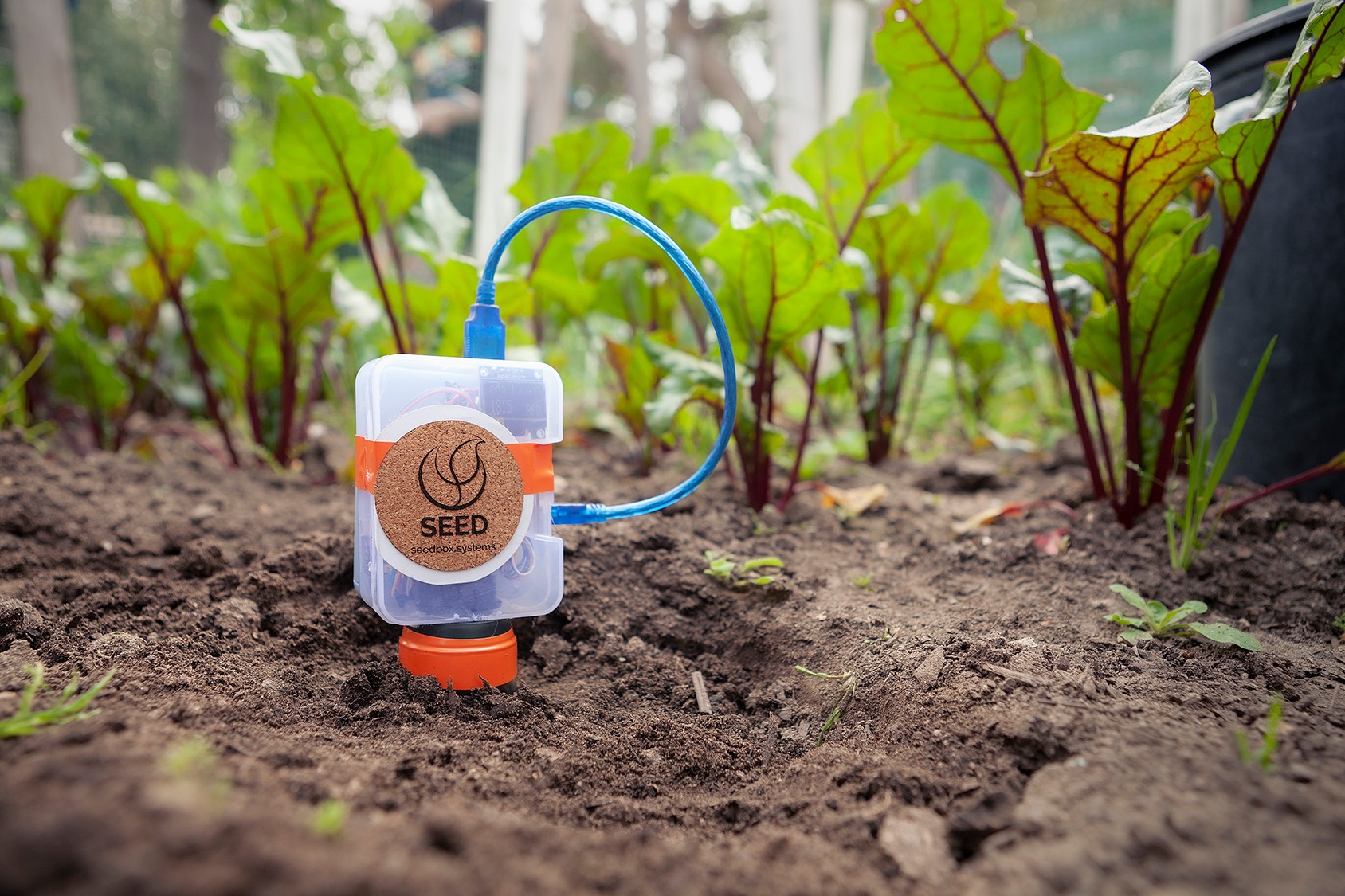
Today we’d like to introduce you to Sabrina Williams.
Hi Sabrina, we’d love for you to start by introducing yourself.
I wanted to be an architect. My goal out of high school was to create multiple-unit, multi-generational housing. During my final thesis project at USC, I realized that a good design still wouldn’t stop low-income housing from being razed for a freeway, so I went to law school. After graduating, I decided to work in public housing and policy, where as a community organizer, I learned people were not permitted to grow their own food in subsidized housing. This was particularly troubling because growing up, my grandmother (a sharecropper’s daughter) was really gifted with soil and sharing overages of its bounty. I watched her use traditional knowledge to innovate in poor soils. I’m sure her “traditionnovation” inspired both the hacker and the advocate in me.
In 2000, I founded a non-profit to help residents not only grow their own food on these properties but also to positively impact community economics and health through better nutrition and selling their overages at farmer’s markets through a project I called SEED. At that time, SEED was an acronym for South Los Angeles Entrepreneurial Ecosystem Development. Well into my 20 years as director, I began experimenting with technology and code at a local makerspace and built a low-cost precision irrigation system. I received a grant from the State Department to take the system to Cuba, where it proved successful in some really challenging environments. The system was small but mighty — reducing water costs and increasing crop yields for our clients. When it became clear that we could sell systems to some clients to subsidize the costs of providing systems to others, I transitioned to a for-profit model. SEED was incorporated as a public benefit corporation in 2019 to reduce the impacts of climate change and food insecurity on underserved and developing communities.
Now, I’m the CEO of SEED, Sustainable Entrepreneurial Ecosystem Development. I’m also a mom, a pretty good baker, a singer, and a Certified Master Gardener.
I’m sure it wasn’t obstacle-free, but would you say the journey has been fairly smooth so far?
My background is not in tech! And even though I’ve always been curious about systems, it has been quite the learning curve to design and build a fully-usable piece of consumer technology — all over the age of 50.
I started out thinking I’d be an architect. Then I was sure I’d stay in law. Along the way, I even worked on a PhD in Urban Planning. And while all those efforts seem disparate (and definitely felt like necessary detours sometimes), I came to realize that the common thread is my doing impact work for underserved communities. SEED is striving to meet UN Sustainability goals but is not a non-profit. So, there is some education that is constantly being done to help people understand that doing meaningful, good work is not mutually exclusive to making a profit. And this is true even if as a B-Corp, we’re putting people and planet before profit.
Another hurdle is the concept of “impact” itself in the for-profit world. It’s gained a lot of attention and funding in the past decade but still has a way to go in sharing that wealth with underrepresented founders like me. For instance, I had no idea that less than 1% of venture capital goes to Black women. I don’t think it would have stopped me from doing this work — I seem to have some persistent compulsion to advance equity and fairness — but I might have made some different decisions about where to seek out initial funding. And it certainly shapes the way I move through the tech world and what doors I choose to knock on.
When I started viewing my work through a climate lens, it was dispiriting at times to see so many people lose financial ground and resilience to climate change. Four years ago, almost 80% of Black, Brown, Indigenous and immigrant growers lacked access to the very tech that could lift them out of poverty. In the past few years, that number has improved by a few percentage points, so some of the ruts in the road are being filled, but the work continues to ensure folks are not left further behind.
As you know, we’re big fans of SEED. For our readers who might not be as familiar what can you tell them about the brand?
Because impact is truly in its DNA, SEED became a Certified B-Corp to democratize access to agtech for people growing food in the hottest, most polluted environments on the planet. Globally, nearly 500 million small-plot farmers suffer disproportionately from agriculture’s 24% contribution to greenhouse gases, because they lack access to the innovative, remediating tools that big corporations have. Most are in emerging and low-income economies, and up to 97% lack high-quality, real-time, and spatially accurate agricultural data. This digital poverty trap further diminishes them while large commercial farms benefit from innovation.
These farmers don’t have the resources to send samples off for analysis, but SEED is working to make sure they can make data-driven decisions to increase yields and reduce pollution right at their site. And, importantly, this includes all of us in urban locations — nearly 45 million people growing on less than 5 acres — at residences, community gardens and urban farms! We’re developing our portable soil carbon sensor, the Radicle — named after the embryonic root of a plant — so that everyone who wants to manage and improve their soil health can do so responsibly, sustainably and affordably.
At SEED, we’re especially proud of our commitment to B-Corp principles that focus on people and planet. That means relying on stakeholder input and acknowledging that, particularly in agriculture, the traditional and modern must work together. The Radicle does just that, supporting existing, traditional practices and integrating new ones—like monitoring for enhanced below-ground traits.
SEED is passionate about our mission to democratize access to agtech, which has a few aims: to decolonize agriculture and eliminate the exploitative nature of carbon colonialism. The colonization of agriculture has occurred everywhere on earth, everywhere that Indigenous and people of color have been forced to bend their practices to others asserting land control. It even includes grow sites in urban and low-income communities of color. Decolonizing it means acknowledging and restoring Indigenous and heritage agricultural practices, which focus on the health of the entire ecosystem.
We’re combating this on the new frontier of carbon credits, too. When the very industries that contribute to the problem seek to offset their responsibilities instead of changing how they operate, low-income farmers, who are promised their “fair” share, are ripe for being taken advantage of. Without a tool like the Radicle, they cannot account for their carbon stores and trade them for financial credit—leaving them neither compensated for the burden of heavy-polluting industries nor the benefit of soil improvements.
The Radicle’s ground-truthed data has been calibrated to satellite-based soil databases. For people growing in polluted sites, it’s helping them remediate soil contaminated by petroleum, lead and nitrogen. And we’re doing all of this operating under a cross-subsidy sales model so that smallholder farmers can receive products on a sliding scale.
Can you talk to us a bit about the role of luck?
I have awesome family and friends in my life, by good luck, who have been my greatest support and safety net. But in business, for the most part, I’ve benefited from paying attention to my intuition. Some people say luck is actually the product of following intuition. For me, that first meant picking up and returning to Washington, D.C. (where I went to law school) after having a deep feeling in my gut that it was what needed to happen to move forward. In what? I didn’t know. I had less than $5000 at the time, and on the second day there, I found the job that helped me go to 40 states where I met a lot of public housing residents and learned that leadership takes on many forms. That then meant when it was time to build a nonprofit around their concerns, I could tap into a vast network of stakeholders ready to offer advice and support. Other than that, I’m an eternal optimist…always trying to live by my grandmother’s garden wisdom that “hot peppers grow in spite of what humans do!”
Contact Info:
- Website: https://www.seedbox.systems
- Instagram: https://www.instagram.com/seedbox.systems/
- Linkedin: https://www.linkedin.com/company/seed-sustainable-entrepreneurial-ecosystem-development/
- Twitter: https://twitter.com/SeedboxSystems
- Youtube: https://www.youtube.com/@Seedbox.Systems



 Image Credits
Image Credits
Kiino Villand Sabrina Williams














